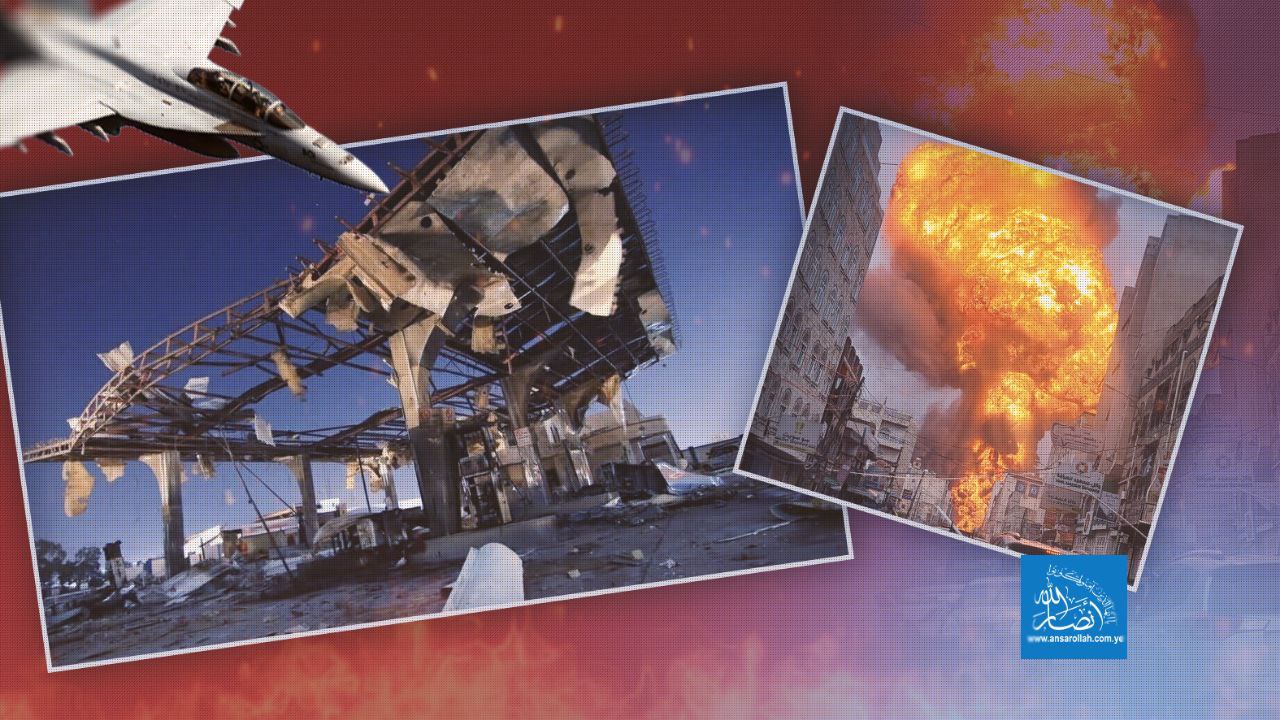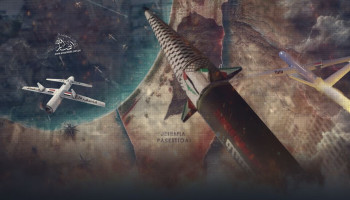Ansarollah Website Official Report
Publsihed: Rabiʻ I 5, 1447 AH
The Zionist enemy is fully aware, before anyone else, that its reckless attacks on vital facilities serving Yemeni citizens achieve nothing of value. Yet it persists in targeting the same objectives—not only because it suffers from paralysis in morality and deformity in humanity, or because it is bereft of options, but because it seeks to provoke discontent and frustration among Yemenis in an attempt to stir them up.
Attempts by the enemy to target Yemen internally are not new, having coincided with the Saudi-American aggression. However, today, the enemy appears more determined, as Yemen emerges as a force capable of confrontation and delivering successful strikes in support of Gaza. Frustrated by its failure to utilize its technological and military capabilities to deter or repel Yemen’s attacks, the Zionist entity has escalated its strikes.
For the enemy, Yemen now represents a direct threat capable of obstructing its path—backed by American support—toward imposing dominance in the region. Recognizing that military aggression cannot neutralize this threat, the occupiers have once again resorted to targeting Yemen domestically, including civilian infrastructure.
Yemeni Society’s Immunity Against Penetration
Zionist research centers in the Israeli entity, the United States, and Britain have for years studied Yemen’s social structure, searching for vulnerabilities to exploit. Their findings confirmed, however, that the Yemeni people possess a strong immunity that is difficult to penetrate. Despite hardships, Yemenis have remained steadfast in their values and principles.
Still, the enemy clings to the faint hope of destabilizing Yemen’s internal front in preparation for incitement. For this reason, it continues targeting service facilities. What such research fails to grasp is that Yemenis do not accept defeat, particularly when facing the Zionist enemy, which they regard as a threat to the Arab and Islamic nations. Fighting this enemy is seen as both a religious and moral duty, reinforced by its history of crimes in the region.
Thus, targeting electricity plants or fuel depots, although disruptive to daily life, fails to achieve the enemy’s aims. On the contrary, such attacks strengthen the Yemeni people’s conviction—across all groups—that the Zionist entity represents a danger to everyone and must be resisted.
The deployment of 14 warplanes—among the most advanced products of the American military industry—against a “fuel station” or “power generators” highlights the scale of the crisis the Zionist entity faces with Yemen, a crisis growing daily. Friday’s exceptional missile strike further exposed the widening gap between Yemen’s rising capabilities and the enemy’s deteriorating defenses, while affirming Yemen’s determination to cement its role as an integral part of the region, where the Israeli intruder will have neither dominance nor free rein.
According to Zionist media, the large-scale deployment of warplanes aimed to cause psychological shock in Yemeni society. Yet the outcome was another failure: ordinary citizens carried on with their daily lives, undeterred by the aircraft and their lethal payloads. The second failure was the humiliating inability of the 14 planes to complete their mission, as Yemen’s air defenses confronted them. The Zionist newspaper "Maariv" reported that the aircraft faced direct threats from Yemeni air defenses. Meanwhile, Yemen’s Oil Company spokesperson confirmed that the fuel destroyed in the targeted station was far less than the fuel consumed by the Zionist planes themselves.
The Enemy Stuck in Failure
As with every aggression on Yemen, the enemy’s attacks produce no effects beyond the targeted sites. By contrast, Yemeni missiles and drones striking deep inside the entity bring life to a standstill, force millions into shelters, and trigger severe economic consequences, including shaken investor confidence in the entity’s already unstable economy. They also generate political and military chaos both within the Zionist entity and in the United States, its chief sponsor.
Consequently, “Israel” remains incapable of escaping its cycle of failure or imposing its will to pressure Yemen into abandoning support for Palestine. Unless the aggression stops and the siege on Gaza is lifted, the Zionist entity cannot achieve any strategic gain. Betting on fracturing Yemen’s internal front has failed over the past decade, as Yemeni steadfastness stems not from fleeting propaganda but from religious and moral duty in defending values violated by Zionists in Gaza.
The Zionist entity’s continued targeting of civilian facilities amounts to a war against the Yemeni people—a war they will not tolerate. Following the latest aggression, the Government of Change and Construction reaffirmed Yemen’s right to defend its people, land, and sanctities, and to deter any aggression with all available means. It condemned the Israeli aggression on Yemen as a heinous war crime, adding to its black record, constituting an assault on Yemen’s sovereignty and its people. The government held the Zionist enemy and its American partner fully responsible for the dire consequences of this aggression.
Shock of Cluster Warheads
Friday’s Yemeni armed forces’ operation deepened the enemy’s humiliation—not only for its precision, but for two major reasons: the continued failure of its defense systems, despite hyped claims of superiority, and the shocking outcome of investigations into why its defenses failed to intercept Yemen’s ballistic missile.
According to the Zionist news outlet "Walla", the missile that struck what is referred to as “Tel Aviv” was multi-stage and carried cluster warheads. A Zionist Air Force source confirmed that the missile contained ten warheads—a terrifying prospect for both the Zionist entity and the United States.
The Zionist daily "Yedioth Ahronoth" reported, citing military sources, that the “Arrow 3” system failed to intercept the missile despite multiple attempts. The paper noted that such weaponry had never before been used against “Israel” and that the missile’s fragmentation into multiple explosives made interception nearly impossible.
Meanwhile, the Associated Press quoted an enemy air force official acknowledging that “the new technology effectively neutralizes defensive systems,” revealing that five missiles from four American and Israeli defense systems failed to intercept Friday’s strike, which targeted several strategic sites, including Lod Airport and buildings east of occupied Yaffa.
A New Balance of Power
These developments in Yemen’s military capabilities, according to Zionist investigations, reinforce the conclusion that Yemeni forces are continuously advancing. This progression crushes imperial morale, as Yemen steadily asserts its role among influential powers. Looking ahead, Yemen may emerge as a guarantor of regional security against foreign intervention and exploitation, firmly establishing itself as an authentic part of the region, one where the Israeli intruder will have no voice or dominance by Allah's will.







